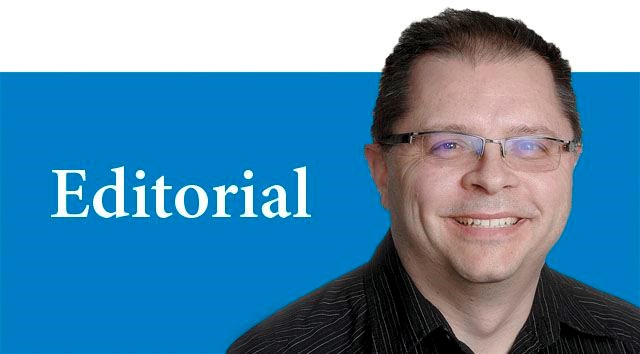In Saturday's Citizen, CNC philosophy and history instructor Reuben Gabriel talked about the student audience of higher education in Canada. In her column today, UNBC political science professor Tracy Summerville also explores that relationship between students and professors.
Both cheerfully describe the traditional relationship between a knowledgeable expert in his or her field leading a group of curious young minds through serious intellectual exploration.
Tom Nichols, however, believes that relationship has been seriously eroded.
In the Higher Education chapter in his book The Death of Expertise: The Campaign Against Established Knowledge and Why it Matters, the U.S. Naval War College professor argues that "the customer is always right" mentality has taken over many universities. He angrily describes how post-secondary education has become a four to six year holiday for entitled young adults, fostered by helicopter parents and university administrators offering experience before education to bring students and their dollars through the door.
Nichols specifically singles out small, young universities for being far more preoccupied with growth in student numbers (and therefore revenue) than education and research.
Although he is speaking about American schools, his concerns apply to Canadian universities, including UNBC.
According to Nichols, today's parents and prospective students seem to be far more preoccupied with the comforts of student lodging, how good the food in the cafeteria is and the social amenities, rather than the quality of the library, the labs and the faculty.
Most universities have now become "safe spaces," he argues, where children masquerading as young adults are coddled with artificially high grades for declining amounts of writing and research. Worse, they are not challenged, particularly in the social sciences and the humanities, with adult topics and issues that may make them uncomfortable and question their beliefs, for fear these discussions will "trigger" emotional distress.
The result, Nichols concludes, are universities and professors seen as mere service providers by their student clients. In the mind of students (and the parents footing the bill), they are paying for an education and a degree, not failing grades and criticism for shabby work from so-called experts in their field.
Nichols isn't the only one with these concerns. Jonathan Haidt of New York University is also worried about the mission of the modern post-secondary institution. He believes universities are faced with a choice of identity (his 66-minute lecture he gave at Duke University last October on this topic is available on YouTube: youtube.com/watch?v=Gatn5ameRr8).
Haidt believes that modern universities must decide whether they are devoted to social justice or to truth and makes a powerful case that they can't have it both ways. That doesn't mean that a school and its faculty that care about social justice don't care about the truth, or vice versa, but that their core ideals are often incompatible.
In a paper in the Journal of Academic Ethics in 2003, Deborah Poff, UNBC's vice-president and provost at the time, encouraged professors and universities ""to advocate the truth even with the truth is neither popular nor expedient in terms of one's own well-being."
Such a relentless pursuit of truth will inevitably pose difficult questions about race, gender, sexuality, religion and other political hot potatoes. Connecting race or gender with physical and/or intellectual ability, for example, is no way to make friends in a modern university setting, even though there are obvious biological, psychological, sociological and evolutionary questions worth pursuing.
A university devoted to the truth welcomes those questions, both in the classroom and in the research lab, and defends the right of professors and students eager to publicly explore these topics and discuss their findings.
A university devoted to social justice, however, considers academic investigation of these issues off-limits because of the harm caused - past, present and future - to the identity of vulnerable populations and individuals.
Current UNBC president Daniel Weeks gave an example of this last year when he refused to release the school's task force report looking into sexual violence on campus because it was "a very sensitive topic."
In his Duke lecture, Haidt said social justice advocacy holds certain truths to be sacred and therefore unquestionable and to challenge these truths in any way is blasphemous. Those who speak blasphemy in a social justice setting are ostracized as sexist, racist, misogynist and so on. While Haidt proudly acknowledges the incredible contributions made by social justice advocates to improve modern life, he falls firmly on the side of truth as the primary pursuit of responsible academics, the institutions that employ them and the students who attend these schools.
UNBC could decide to become an institute of social justice and change (Haidt cites Brown University in the U.S. as a school that has made that its primary mission) but then it needs to clearly broadcast that philosophy to everyone - faculty, students, donors and the broader community.
The path UNBC takes should be discussed openly, rather than something that just happens gradually and without planning. Regardless of its future philosophical mission, UNBC also needs to heed the warning of Nichols and others or risk becoming little more than a glorified resort for young adults that hands out little more than participation badges and attendance certificates.
-- Editor-in-chief Neil Godbout



